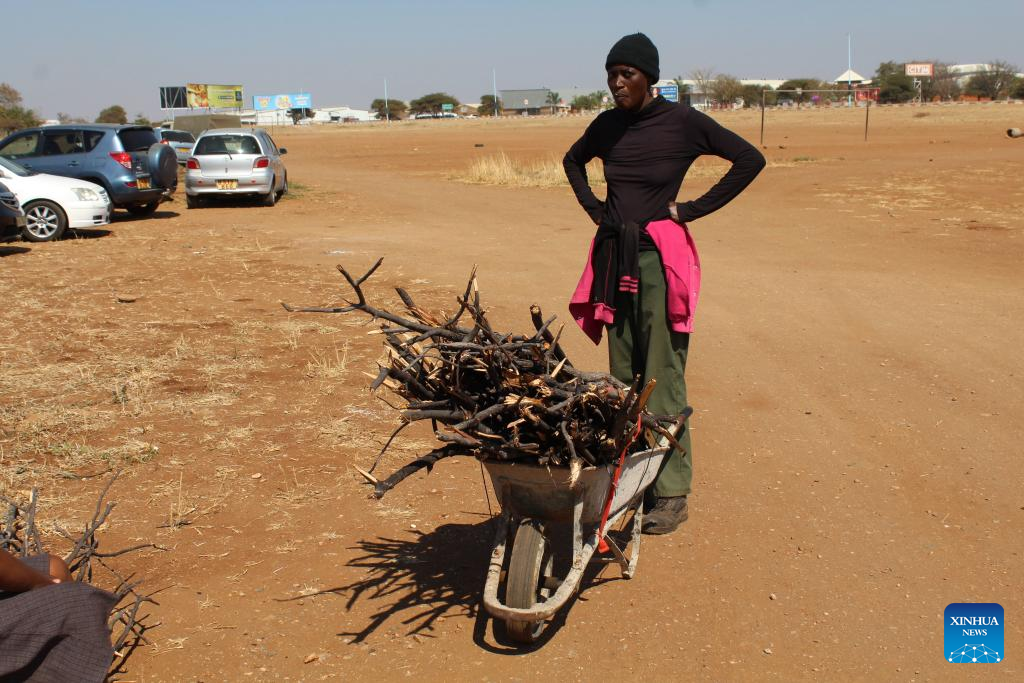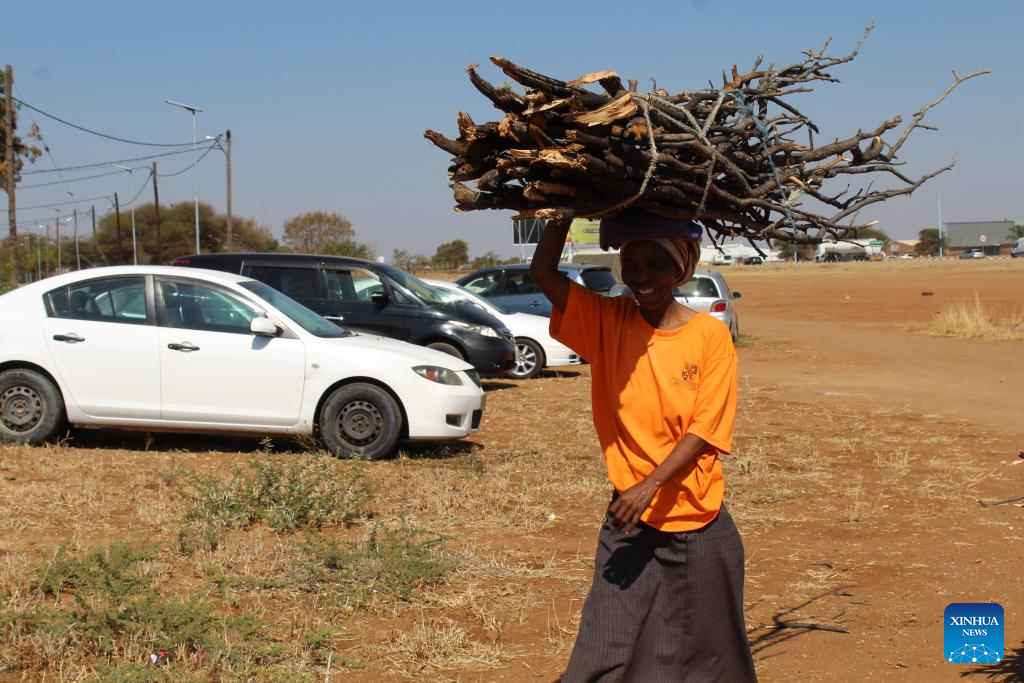
Kesebonye Mbambo rests after pushing a wheelbarrow full of firewood in Francistown, Botswana, July 23, 2023 (Photo by Shingirai Madondo/Xinhua)
GABORONE, April 6 (Xinhua) -- Kesebonye Mbambo, a resident of Somerset, a high-density suburb of Francistown, Botswana's second largest city, has started to ransack the forest near her home for firewood ever since Botswana Power Corporation (BPC) switched from post-paid to pre-paid over a decade ago.
In an interview with Xinhua, Mbambo, 41, said she uses about 2 tons of wood per months for cooking and to perform other domestic chores that need energy such as ironing. "There is no other means at my disposal to cook because I cannot afford to buy electricity cooking gas. So, I have to cut down trees in the forest near where I am renting a one room," she added.
According to Mbambo, she used to use electricity in the past even if she had no means to pay for it because BPC, Botswana's sole power utility, had not switched from post-paid to pre-paid electricity.
Pre-paid electricity means a customer can only be allocated electricity according to what one has paid for. The payment is done before the customer has used the electricity, said Mbambo, adding that many are failing to do so.
Tiny Moloi is a neighbor to Mbambo and in most cases they go to the forest together in search for firewood "because like my friend (Mbambo), I cannot afford to buy the pre-paid electricity," she said.
Moloi said she needs at least 1.5 tons of wood every month in order to meet all her energy needs. She tried to substitute electricity with liquefied gas and illuminated paraffin, but it proved expensive for her.
A single unit of electricity costs more than one pula while liquefied gas is valued at more than two pulas, according to a recent survey conducted by the Department of Consumer Affairs, which falls under Botswana's Ministry of Investment, Trade and Industry.
Mbambo needs 500 pula (about 38 U.S. dollars) per month while Moloi needs 300 pula (about 24 U.S. dollars). Mbambo has five children and Moloi has three. The bigger the family, the higher electricity expense there are.
Dumezweni Mthimkhulu, Botswanan Minister of Environment and Tourism, admitted in an interview with Xinhua that residents account 20,000 hectares of deforestation each year in Francistown. "We are deeply concerned by the alarming rate of deforestation and forest degradation in our country, driven by unsustainable land-use practices, illegal logging, agricultural expansion and infrastructure development," he said.
Mthimkhulu said this destruction not only threatens biodiversity and ecosystems but also exacerbates climate change, leading to adverse impacts on weather patterns, water cycles, and human health.
"We call upon residents, civil society, and the private sector to prioritize the conservation, restoration, and sustainable management of forests," said Mthimkhulu.
He said Botswana is doing everything within its power to strengthen protected area networks, implementing land-use planning and zoning regulations, promoting agroforestry and sustainable agriculture practices, and supporting community-based forest management initiatives.
In addition, Botswana has embarked on promoting clean energy through installation of solar farms with a view of making electricity accessibility cheaper and more convenient to the residents.
Under Botswanan law, anyone who cuts down trees and collects other forest products without a license risks arrest and a fine of between 5,000 pula and 500,000 pula (357 U.S. dollars and 35,714 U.S. dollars). But little has been done in terms of enforcing the laws protecting forests because "it is difficult to enforce a law when the government is the one failing to provide the amenities to its people," said Mthimkhulu.
According to an analysis by the World Bank, the forestry sector contributes an average of between 4 percent and 19 percent to the gross domestic product (GDP) of seven member states in the Southern African Development Community (SADC) region, including Botswana. ■

Tiny Moloi carries firewood on her head in Francistown, Botswana, July 23, 2023 (Photo by Shingirai Madondo/Xinhua)
